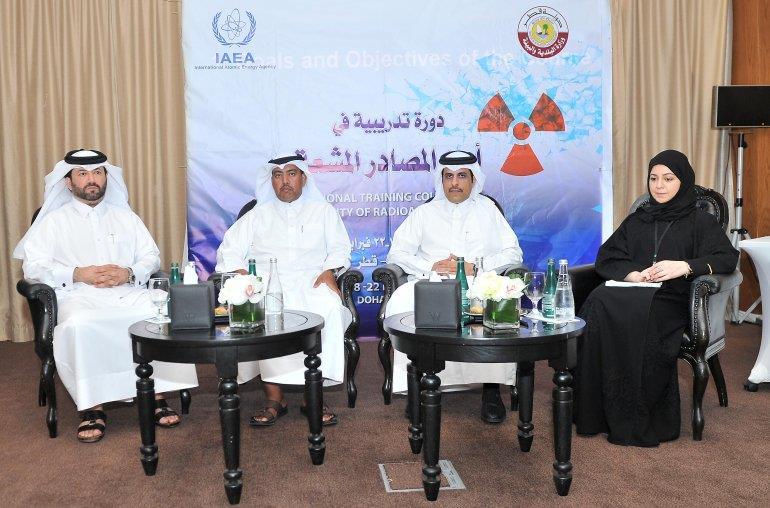
Qatar implementing seven projects with IAEA
DOHA: Qatar is implementing a total of seven projects in collaboration with the International Atomic Energy Agency (IAEA) in various sectors including food security, health, and agricultural research, said Aisha Ahmed Al Baker, Director of the Radiation and Chemical Protection Department.
'Under 2018-19 plan, two projects are being implemented in food sector; one project with Agricultural Research Department at the Ministry of Municipality and Environment and another one with food laboratory run by the Ministry of Health, said Al Baker, while speaking with media persons on the sidelines of a training course on the security of radioactive sources. She said that others projects are related to medical radiation technology and those needed in education sector.
'One of the projects is aimed at preparing cadres to tackle the emergency condition of nuclear radiation by providing necessary equipment and trainings, Al Baker remarked.
She said that 14 stations were established to monitor radiation across the country and another six water stations were set up the Qatar General Electricity and Water Corporation (Kahramaa) for the same purpose. A five-day training course on the security of radioactive sources began here yesterday. The course is being organised by the Ministry of Municipality and Environment in cooperation with IAEA. A total of 50 trainees from various governmental and private institutions are participating the course. 'Training course aims at providing knowledge, experience and basic skills of the employees working in facilities dealing with radioactive sources, said Eng Ahmed Mohammed Al Sada, Assistant Undersecretary of the Ministry of Municipality and Environment and Qatar's liaison officer with IAEA, in his inaugural speech.
He said that the purpose of the course is also to develop programme for the protection of radioactive sources in facilities and to assist the supervisory authority to put the rules and regulation for inspection in this regards.
Brigadier Hassan Saleh Al Nisf, Vice-Chairman of the National Committee for the Prohibition of Weapons, highlighted the importance of raising awareness in the security and safety field and the role of the private sector in this context as well as the necessity of coordination among all relevant parties. 'The training course is part of the National Plan for Nuclear Security Support (2017-2019) on strengthening Qatar's nuclear security infrastructure as well as assessing the actual needs to meet all challenges in the area of nuclear security as per the international standards, said Aisha Ahmed Al Baker, Director of the Radiation and Chemical Protection Department and coordinating officer of the National Integrated Nuclear Security Support Plan.
Al Baker said that the plan includes five key points including the legislative and regulatory framework, prevention, detection, response and sustainability, while accessing the needs, responsible entities and organisations in the country as well as the time frame for the implementation of activities that were agreed in this regards.
She stressed that hazardous radioactive sources remained a priority issue to be addressed by governments and the international community, while the requirements for the security of radioactive sources during their life cycle remained relatively new among regulators, users and other stakeholders.
'IAEA safety standards and other publications, such as the Code of Conduct on the Safety and Security of Radioactive Sources as well as directives on the import and export of radioactive sources, provide international requirements and recommendations to assist the countries in establishing an appropriate and sustainable regulatory system for monitoring the sources, added Al Baker.
She said that the Ministry of Municipality and Environment has made remarkable achievements in protecting the environment and setting up natural balance through comprehensive and sustainable development for the benefit of future generations. The Radiation and Chemical Protection Department is trying to promote a culture of nuclear and radiological safety and security and to monitor the peaceful uses of nuclear energy through a slew of national and regional projects and plans in contribution with the national stakeholders and international cooperation with relevant organisations and bodies.
The move aims at building capacity, training human cadres, providing equipment and devices, putting standards, and coordinating with all public and private sectors to ensure the protection of human being and environment, she said.

Legal Disclaimer:
MENAFN provides the
information “as is” without warranty of any kind. We do not accept
any responsibility or liability for the accuracy, content, images,
videos, licenses, completeness, legality, or reliability of the information
contained in this article. If you have any complaints or copyright
issues related to this article, kindly contact the provider above.
















Comments
No comment